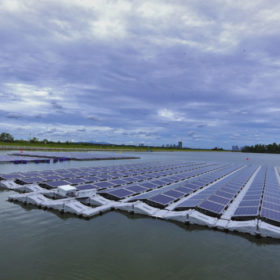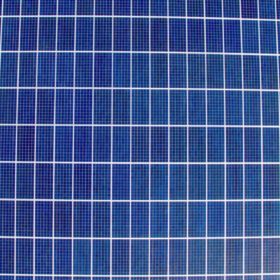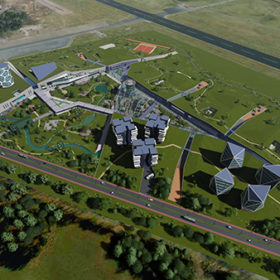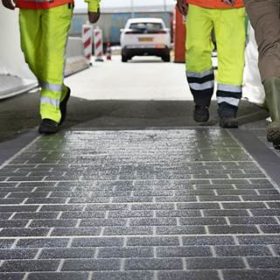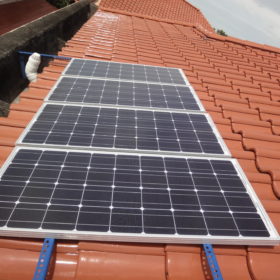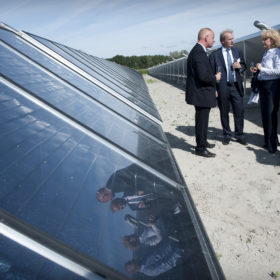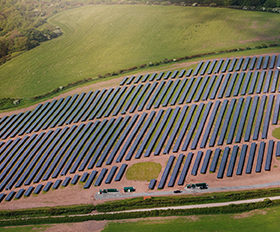The weekend read: Staying afloat, whatever the weather
From a little known niche just a few years ago, floating solar has quickly grown to more than 1 GW of installed capacity worldwide, and a source of great hope for the industry’s future, particularly in countries where space for solar is at a premium. pv magazine spoke with experts from leading floating PV test centers in Singapore and the Netherlands to outline the challenges still faced by floating PV as the technology moves towards major growth.
Netherlands government to issue green bonds in 2019
The Dutch government is planning to raise between €3.5 billion and €5 billion through green bonds annually. The proceeds will be used for sustainable investments, including renewable energy deployment.
Solar panel theoretical efficiency limit increases by 33%
Researchers at the University of Amsterdam have found what they describe conclusive evidence that perovskites feature “efficient carrier multiplication,” effectively increasing the single layer efficiency limit from 33% to 44%.
Dutch battery maker signs agreement for €1.6bn Chinese gigafactory
Lithium Werks has ambitious plans for a global chain of utility-scale production lines that has secured the backing of the Netherlands government and PM Mark Rutte, as EU leaders contemplate a post-US trade future.
Netherlands to test viability of solar roads
Although solar energy roads are still considered economically unviable, the Dutch water management agency, Rijkswaterstaat announced it will investigate their potential as an alternative to the lack of surfaces for PV deployment in the Netherlands.
Netherlands begins inquiry into fire accidents involving rooftop PV
The investigation will be carried out by the Netherlands Organisation for Applied Scientific Research on behalf of the national enterprise agency and at the request of PV association Holland Solar and Uneto-VNI, the country’s installers’ association.
Battery maker Lithium Werks to open research campus in Twente
The Dutch company provides lithium iron phosphate batteries and employs artificial intelligence solutions for mobility-as-a-service applications. It aims to develop its technology further with the help of the University of Twente.
Vattenfall expands PV business in the Netherlands
The company’s Dutch unit, Nuon, has agreed to acquire three solar projects totaling 27.5 MW of capacity from Powerfield. The projects will be developed under the Netherlands’ SDE+ program, for large scale renewables.
Goldbeck Solar plans 150 MW of solar in the Netherlands
The EPC has been operating in the Dutch market for a while. It expects to commission 150 MW of solar PV over the next two to three years. In related news, a total of 772 dairy farms are participating in the FrieslandCampina Solar program.
The weekend read: The new Dutch climate proposal unpacked
The Netherlands, second-last in the EU when it comes to the production of renewable energy, presented its first draft of the Dutch Climate Agreement. This agreement is drafted to set out targets and policies across sectors such that the country adheres to the previously proposed Climate Act. When both are signed, writes Rolf Heynen, director of Good! New Energy, the Netherlands will be only the seventh country worldwide with such an act – and on paper one of the most ambitious. What will this mean for solar energy?
